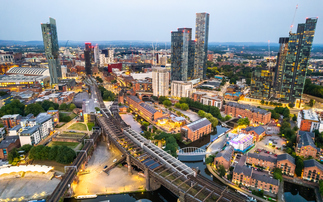Adapting to extreme heat requires a vision and incremental implementation through nature positive design - and we cannot afford to shy away from this challenge, writes Arup's Dima Zogheib
Climate change is making our cities dangerously hot - and this is only getting worse, with the number of cities exposed to extreme temperatures of 35°C and above expected to triple by 2050. The built...
To continue reading this article...
Join BusinessGreen
In just a few clicks you can start your free BusinessGreen Lite membership for 12 months, providing you access to:
- Three complimentary articles per month covering the latest real-time news, analysis, and opinion from Europe’s leading source of information on the Green economy and business
- Receive important and breaking news stories via our daily news alert
- Our weekly newsletter with the best of the week’s green business news and analysis






